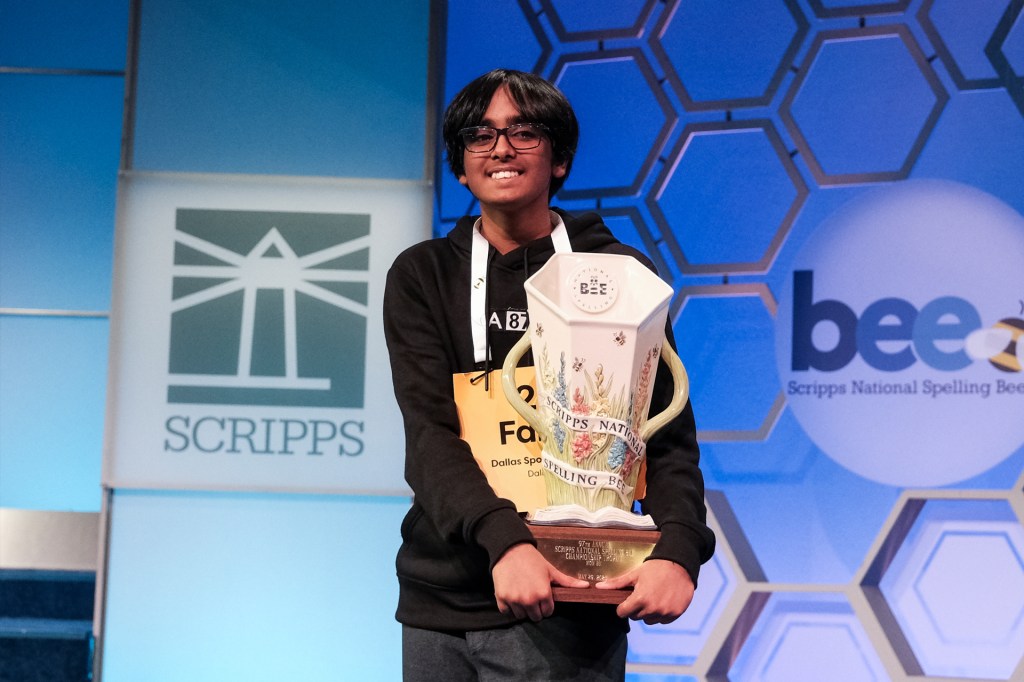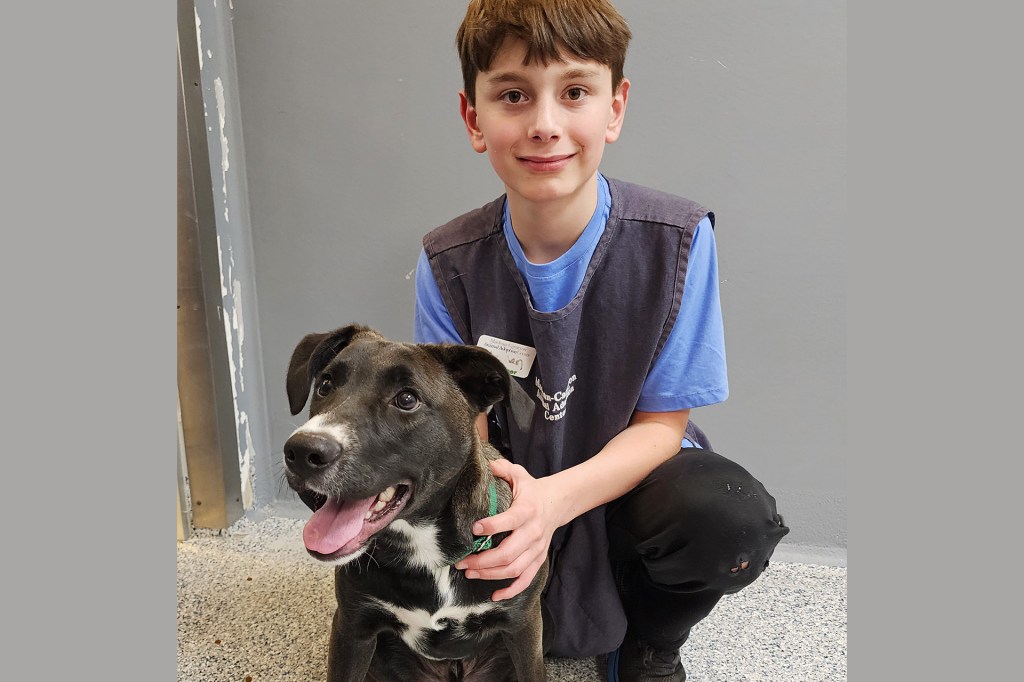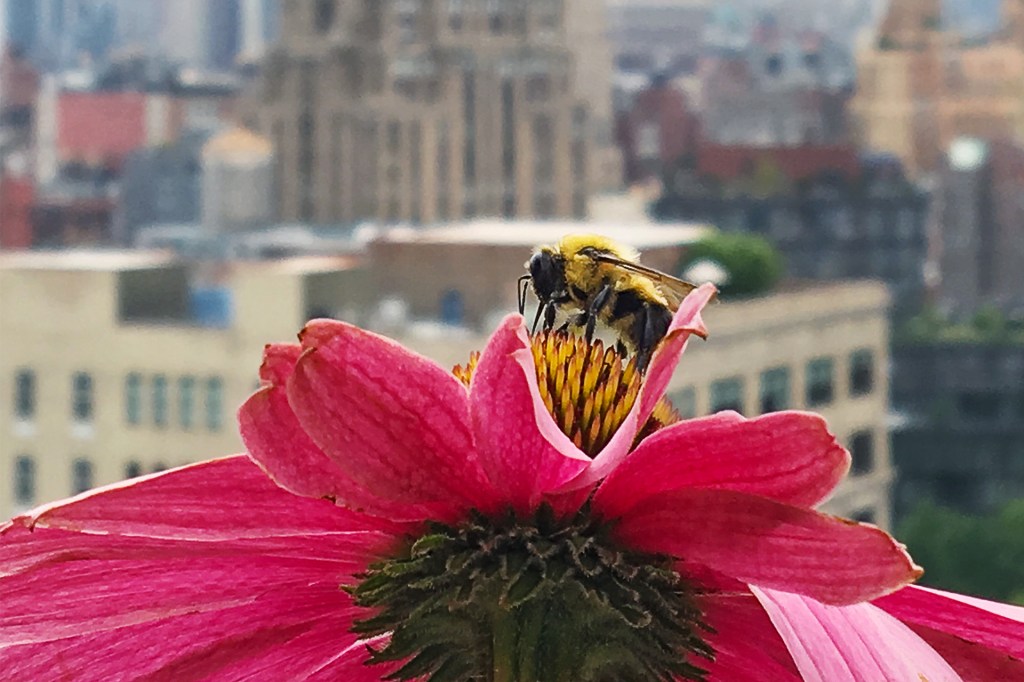The Syrians Next Door
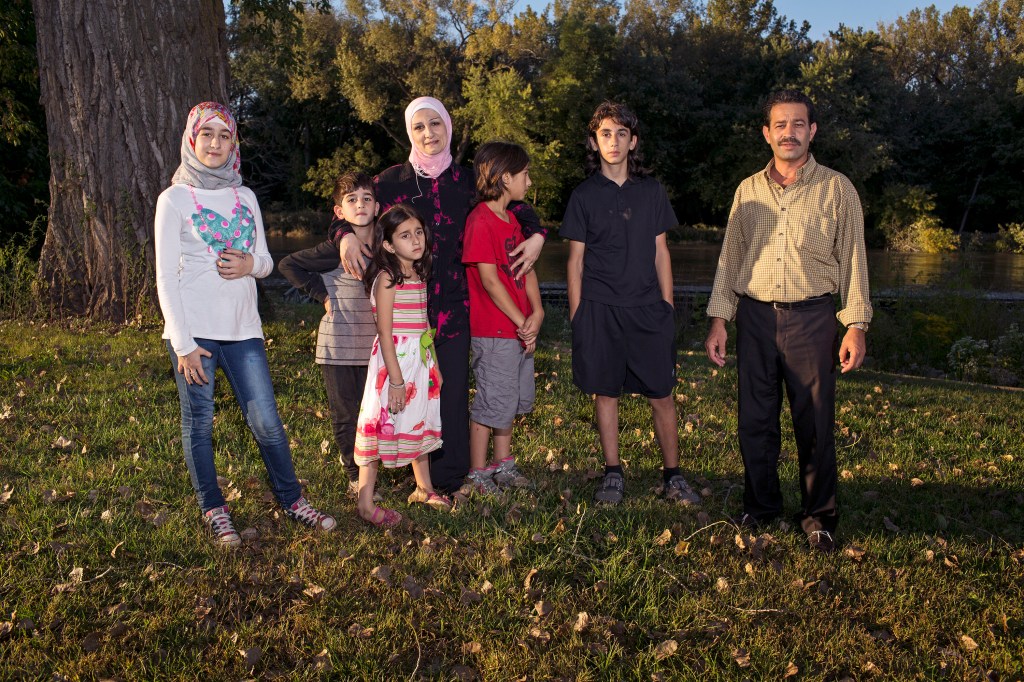
As the plane descends over farm fields in Des Moines, Iowa, Ghazweh Aljabooli reaches for her daughter Hala, 6. Ghazweh, her husband, Adbul Fattah Tameem, and their five children—Nazeer, 15; Sedra, 13; Haidar, 11; and twins Hala and Mutaz—are on the last leg of a long trip.
At the airport, Ghazweh is worried. What happens next? Will someone meet them? At the bottom of an escalator, a man is waiting with a smile. "Ahlan wa sahlan," he says. It is Arabic for "welcome." Ghazweh's eyes fill with tears. "I was so scared," she says.
The next morning, the Tameems visit their new home. It is a four-bedroom apartment. The kids run to their rooms. Each bed has a handmade quilt donated by a local quilting group and a stuffed animal on top. "There's a teddy bear for me!" Hala says, beaming. In the coming days, the apartment is filled with people who want to help the family. Ghazweh is overcome by happiness mixed with confusion. This new life feels like a dream.
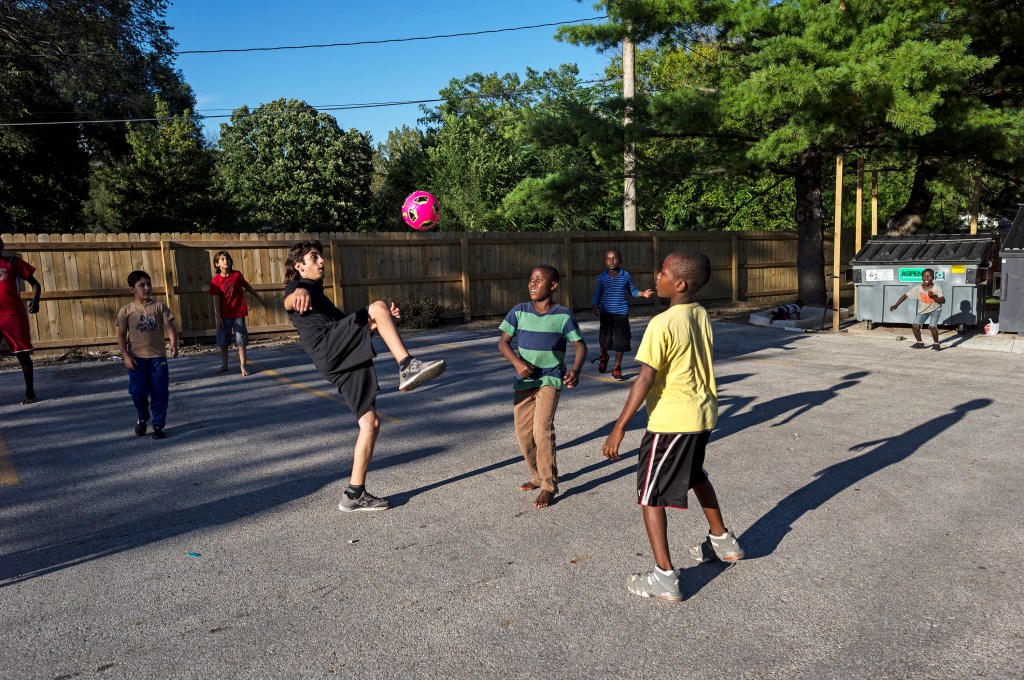
Nazeer plays soccer with friends in Des Moines, Iowa.
DANNY WILCOX FOR TIMEEscaping a Civil War
The Tameems' journey began five years before. They lived in Homs, a city north of Syria's capital, Damascus. They were middle class. The children went to school. The family took vacations. But that changed in 2011 when a civil war erupted. Bombs destroyed the family's home.
The Tameems eventually escaped to Jordan. They are among the 5 million people who have fled Syria. The war has killed more than 400,000 people. In Jordan, the Tameems registered as refugees with the United Nations (U.N.). That gave them international protection. But Jordan was not welcoming. U.N. officials asked the Tameems if they wanted to move to the U.S. They decided the U.S. offered opportunities for their children.
The resettlement process is not easy. Refugees are screened by five federal agencies, including the FBI and the Defense Department. Syrians must also go through an additional review. Vetting takes 18 to 24 months. The Tameems passed every part. About two years after they arrived in Jordan, officials offered them resettlement. Ghazweh was so excited, she jumped in the air.
A Family's New Life
The five children go to three schools. Nazeer is at Hoover High School. Sedra and Haidar are in middle school. Hala and Mutaz's elementary school is new and bright. It is filled with kids who came to Iowa from some of the most violent places in the world.
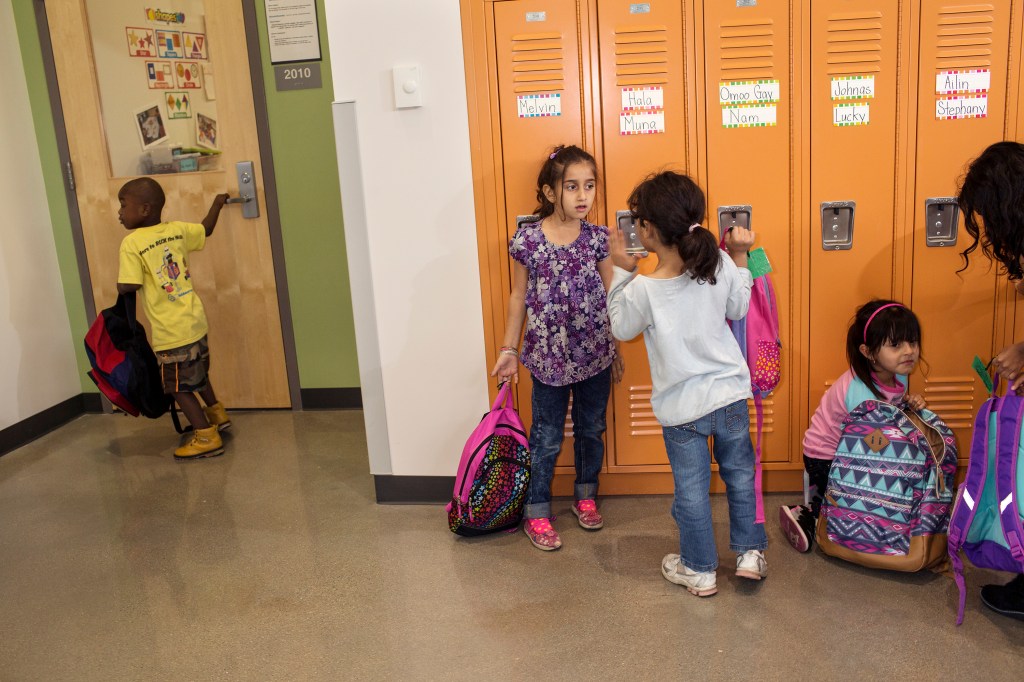
DANNY WILCOX FOR TIME
Hala stands in front of her locker at her new elementary school.On the twins' bus ride home, Nepalese kids sit in one cluster. Mexicans are in another. Hala and Mutaz sit with other Syrians. "Does anybody get off at 13th?" the bus driver calls out. The children are silent. "I have never driven a bus where nobody speaks English," the driver says. One student misses her stop. Another gets off too early. Finally, the bus arrives in the Tameems' neighborhood. It is more than two hours late. When the door opens, Ghazweh grabs Hala and hugs her. "Where were you?" she asks. Ghazweh had been scared. But a few minutes later, she's laughing again.
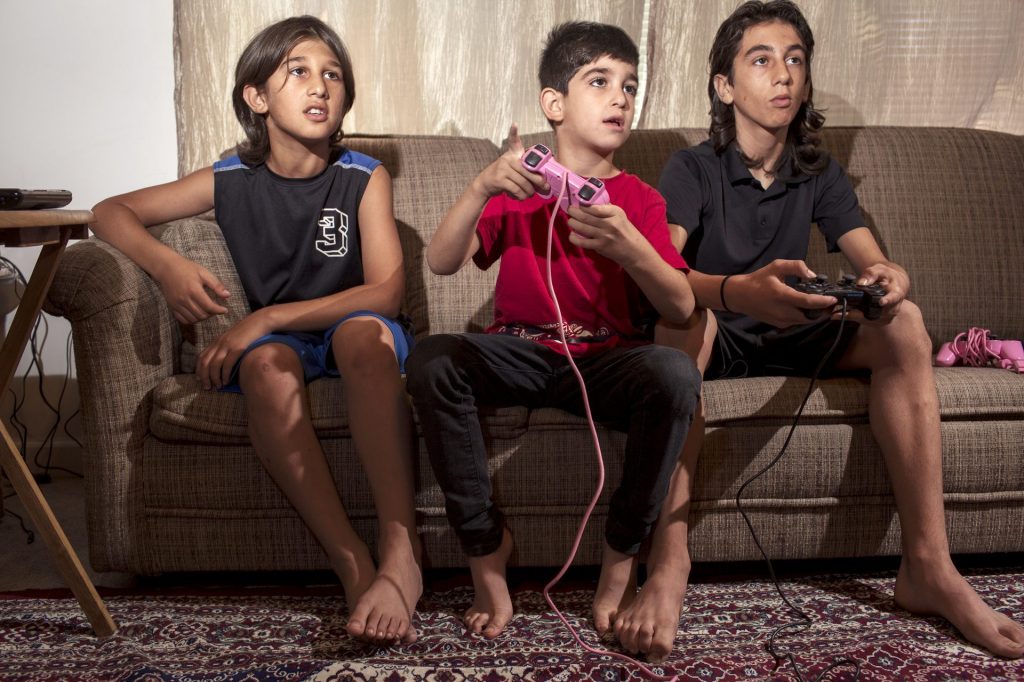
Haidar, Mutaz, and Nazeer play video games in their home.
DANNY WILCOX FOR TIMEThe next day, the family goes swimming at a lake. Ghazweh watches her kids play. They are together. They are safe. They have a future, she says. They didn't before. "I'm happy," says Ghazweh, in Arabic, smiling toward Hala. And then she says it again, haltingly, grinning, in English: "I am very happy."





